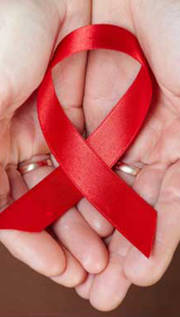
World AIDS Day 2020: Know Causes, Symptoms And Prevention For HIV/AIDS
Posted 01 Dec 2020 | Source: NDTV
World AIDS Day 2020: Every year on December 1st, World AIDS Day is observed around the world to spread awareness about this life-threatening condition. Read here to know from the expert how to prevent this.
World AIDS Day is observed on every 1st December to create awareness about AIDS. Acquired immunodeficiency syndrome (AIDS) is a chronic life-threatening condition which is caused by the human immunodeficiency virus (HIV). This condition damages the immune system of the patient and reduces the disease-fighting ability of the body. This day also tries to garner more public attention regarding HIV/AIDS and motivate people and organisations to take active steps towards ending the spread of this serious condition. This year the theme of World AIDS Day 2020 is ending the epidemic: Resilience and impact which is a call to all the organisations and individuals around the world to raise awareness about this epidemic, increase the knowledge about this disease and speak out against the prevailing HIV stigma.
With the increased efforts undertaken to raise public awareness about HIV and AIDS in the last decade, fighting against the human immunodeficiency virus is possible and patients suffering from these diseases now have access to proper medical care. However, even though the awareness about AIDS and HIV has increased but still millions of people around the world continue to contract HIV and die of the last stage of the virus's infection, AIDS.
Therefore, as this pandemic continues to impact human life, it is has become extremely important for people to understand the various facts related to the disease. In this article, Dr. Swati Rajagopal who is a Consultant, Infectious diseases and travel medicine at Aster CMI Hospital tells, how this infection spreads and prevention steps.
1. How can you contract HIV and how does it spread?
- One can contract HIV due to several reasons - Contact with one's body fluids like blood, semen, pre-seminal fluid, vaginal and rectal fluids, and breast milk of an infected woman
- Having unprotected sex with an infected person.
- Through sharing of drug injections, razor blades, knives and needles with an infected person
- HIV if not treated can also spread from an infected mother to her child during pregnancy and delivery
Also read: World AIDS 2020 Focuses On Resilience And Impact Of HIV/AIDS Epidemic
2. What are the early symptoms of the disease?
The early symptoms of the disease include - fever, sore throat, skin rashes, nausea, general body aches and pain, headaches and stomach upset etc. As the infection progresses, the disease further weakens the immune system of the individuals and they undergo weight loss and can have diarrhoea and swollen lymph nodes. This makes early detection and treatment extremely important for HIV patients.
Fever, sore throat, skin rashes and nausea are some early symptoms of HIV/AIDS
Photo Credit: iStock
3. What are preventive measures that one must follow to avoid contracting the disease?
- Use protection during intercourse
- Avoiding sharing needles and blades with people
- If pregnant then one must consider taking antiretroviral medication to prevent the transmission of the infection to the baby.
- People must understand that there is still no cure for HIV infection but with timely treatment and control measures, we can save a lot of lives and can restrict the transmission of this virus.
HIGHLIGHTS
- World AIDS Day is observed on 1 December each year
- Direct contact with infected person can spread the infection
- it is important to seek immediate medical help after noticing symptoms
